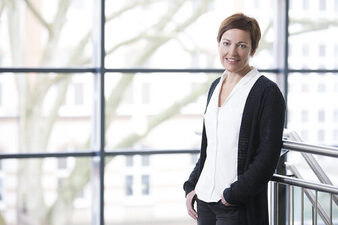What is it about?
Mechanical engineering is at the heart of technological development and is highly relevant in various branches of industry. From the automotive industry, aircraft construction and shipbuilding to environmental technology and energy supply, mechanical engineering is used in all of these areas. Mechanical engineering plays a stimulating and innovative role, particularly in forward-looking technologies such as Industry 4.0, additive manufacturing (e.g. 3D printing) or robotics and automation technology. Topics such as sustainability and globalization are increasingly coming into focus.
Profile of the study program
Specializations in the study program
Course of study
Impressions from your studies
Prospects after graduation
Why study at Fachhochschule Dortmund?
Who is it for?
Desirable subject-specific and interdisciplinary knowledge
Stay abroad possible during your studies
What do I need?
1. qualification / certificates and degrees
2. register now
Who can help me?
We will be happy to answer any questions you may have about the study program and Fachhochschule Dortmund.


